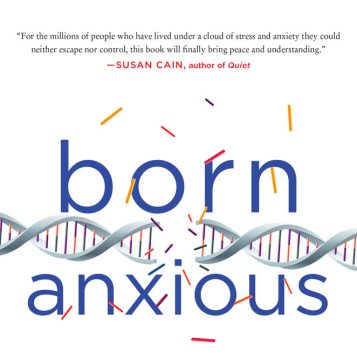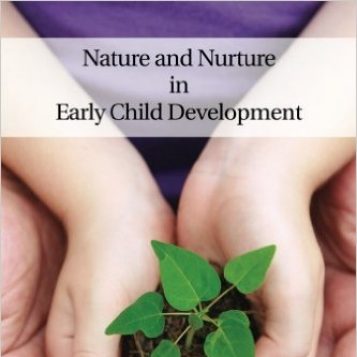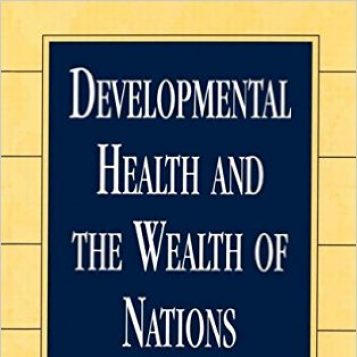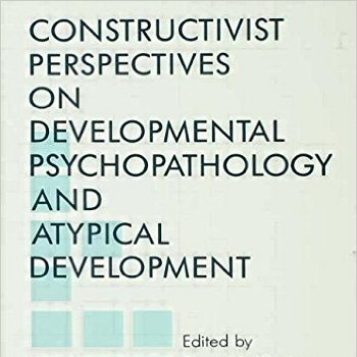Professor of Psychology, Psychiatry, and Pediatrics; Research Professor, Survey Research Center, Institute for Social Research
About
The overarching goal of my research focuses on discovering core, modifiable factors that lead to disparities in health and development from the prenatal period through emerging adulthood. This entails both “drilling down” to understand central biodevelopmental mechanisms, and “ramping up” to understand population patterns and societal structures that contribute to developmental health.
The first program of research (funding from NICHD, Keating PI) focuses on adolescent cognitive, behavioral, and brain development, including neurocognitive and neuroimaging methods, aimed at understanding the neurodevelopmental pathways in adolescent and early adult health risk behavior (AHRB). We have collected self-report and neurocognitive task data on a diverse, representative cohort of 15-17 year-olds (N=2017 at Wave 1), and have completed two subsequent waves of data collection with them (up to age 21). A targeted subsample of this group (high and average risk-takers) is also participating in a longitudinal neuroimaging study (fMRI, DTI, resting state, and EEG/ERP), with two waves. While seeking funding to collect additional waves, we are pursuing multiple avenues of investigation with existing AHRB self-report, behavioral, and neuroimaging data.
The second program of research focuses on the impacts of early life adversity and exposures, from prenatal through infancy, encompassing both psychosocial stressors and physical exposures. This is part of the national ECHO study (Environmental Influences on Child Health Outcomes, funding from NIEHS), in which a Michigan consortium is a research site, and includes cohorts for which data collection continues. Keating’s role (as a co-investigator) is to focus on neurodevelopmental outcomes of early adversity and exposures, and the mechanisms through which they “get under the skin”, including epigenetic pathways.
Current course offerings: a graduate seminar on adolescent development; and undergraduate courses in Adolescent Psychology, Advanced Research in Adolescent Development, and a Freshman Seminar on the development of stress and resilience.
Recent representative publications
Keating, D. P. (2017). Born Anxious: The Lifelong Impact of Early Life Adversity – and How to Break the Cycle. New York: St. Martin’s Press. [2019 Eleanor Maccoby Book Award for Developmental Psychology, American Psychological Association, 2019]
Demidenko, M., Ip, K.I., Kelly, D., Constante, K., Goetschius, L. G., & Keating, D. P. (2021, in press) [Registered Report Stage 2]. Ecological stress, amygdala reactivity, and internalizing problems in preadolescence: Is parenting a buffer? Cortex.
Demidenko, M.I., Weigard, A.S., Ganesan, K., Jang, H., Jahn, A., Huntley, E.D., & Keating, D.P. (2021, in press). Interactions between methodological and interindividual variability: How Monetary Incentive Delay (MID) task contrast maps vary and impact associations with behavior. Brain & Behavior.
Constante, K., Huntley, E., Si, Y., Schillinger, E., Wagner, C., & Keating, D. (2021, in press). Conceptualizing protective pamily context and its effect on substance use: Comparisons across diverse ethnic-racial youth. Substance Abuse.
Demidenko, M. I., Huntley, E. D., Jahn, A., Thomason, M. E., Monk, C. S., & Keating, D. P. (2020). Cortical and subcortical response to the anticipation of reward in high and average/low risk-taking adolescents. Developmental Cognitive Neuroscience, 44. https://doi-org.proxy.lib.umich.edu/10.1016/j.dcn.2020.100798
Demidenko, M., Ip, K.I., Kelly, D., Constante, K., Goetschius, L. G., & Keating, D. P. (2020, Preregistered Report Stage 1). Ecological stress, amygdala reactivity, and internalizing problems in preadolescence: Is parenting a buffer? Cortex.
Huntley, E. D., Marusak, H. A., Berman, S. E., Zundel, C. G., Hatfield, J. R. B., Keating, D. P., & Rabinak, C. A. (2020). Adolescent substance use and functional connectivity between the ventral striatum and hippocampus. Behavioural Brain Research, 390. https://doi-org.proxy.lib.umich.edu/10.1016/j.bbr.2020.112678
Zinn, M. E., Huntley, E. D., & Keating, D. P. (2020). Resilience in adolescence: Prospective Self moderates the association of early life adversity with externalizing problems. Journal of Adolescence, 81, 61-72. doi: https://doi.org/10.1016/j.adolescence.2020.04.004
Maslowsky, M., Owotomo, O., Huntley, E. D., & Keating, D. K. (2019). Adolescent risk behavior: Differentiating reasoned and reactive risk-taking. Journal of Youth and Adolescence, 48: 243-255. doi:10.1007/s10964-018-0978-3
Demidenko, M., Huntley, E. D., Keating, D. K. (2019) Adolescent health risk behaviors: Convergent, discriminant and predictive validity of self-report & cognitive measures. Journal of Youth and Adolescence. 48: 1765-1783. doi: 10.1007/s10964-019-01057-4.
Maslowsky, M., Owotomo, O., Huntley, E. D., & Keating, D. P. (2019). Adolescent risk behavior: Differentiating reasoned and reactive risk-taking. Journal of Youth and Adolescence, 48: 243-255. doi:10.1007/s10964-018-0978-3
Keating, D. P. (2016). Social inequality in population developmental health: An equity and justice issue. In S. Horn, M. Ruck, & L. Liben (Eds.): Equity and Justice in Developmental Science: Theoretical and Methodological
Issues, Advances in Child Development and Behavior, 50, 75-104. UK: Academic Press.
Keating, D. P., (2016). The transformative role of epigenetics in child development research, Child Development, 87 (1), 135-142.





